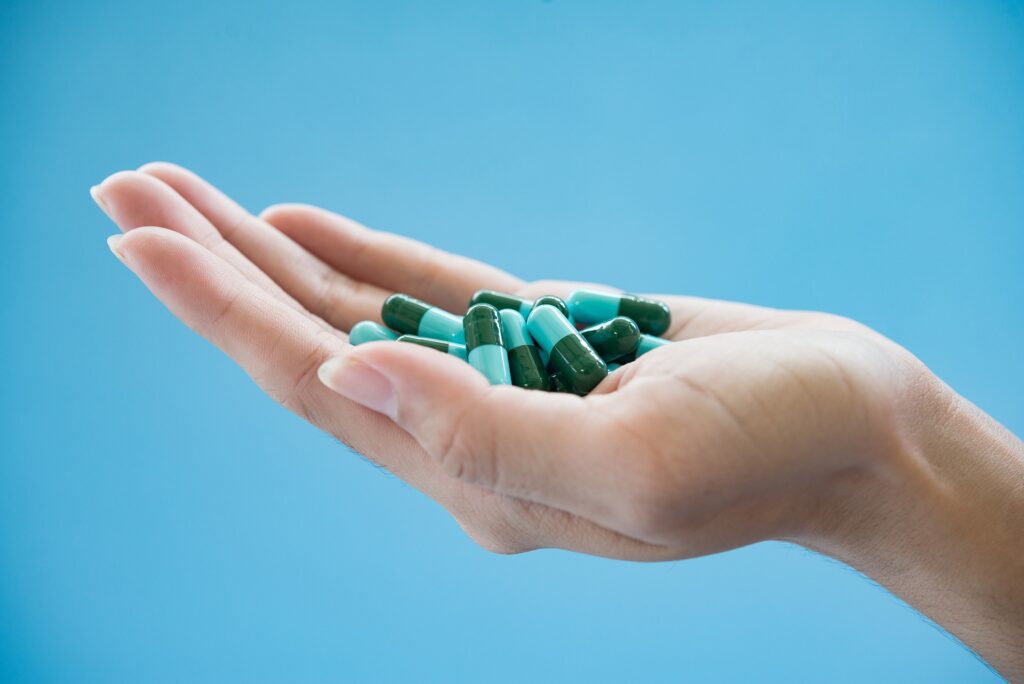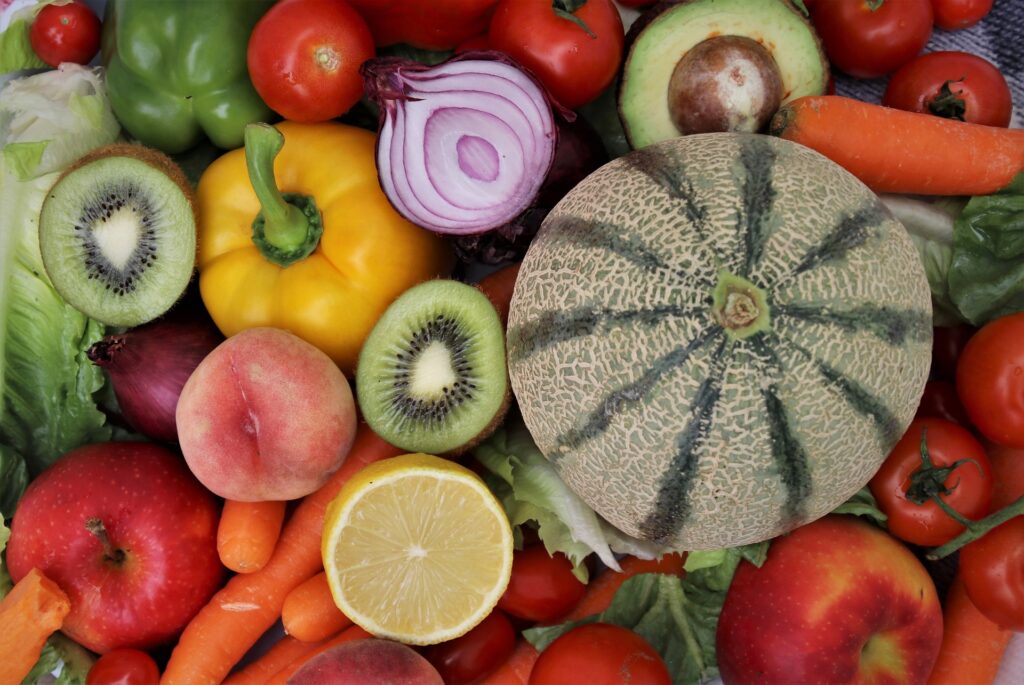The gut biome is your personal digestive ecosystem that includes the billions of microorganisms inhabiting your gut. Learn how to keep a healthy balance of all those lively critters that can help or harm your health.
The word “microbiome” defines any group of microorganisms that form a community within a habitat, any habitat. When we talk about the gut biome, we’re talking about the microorganisms that live in the human digestive tract.
And there are billions of them! They comprise bacteria, fungi, and other critters. While it’s comforting to think of them as a happy little interactive community, if you’ve ever had an upset stomach (and who hasn’t?) or other digestive issues, you know that things can go wrong within the community.
While the majority of the bacteria residing in your intestines are beneficial and necessary for good health, other microorganisms cause uncomfortable and sometimes serious health problems.
Your gut biome is unique to you and you alone. So, every person has a happy balance of biome residents who work together to create good health.
There are some general guidelines for developing good gut health and for healing the gut if it’s out of balance—but remember everyone is different. Just because something works for you, does not mean that it works for everyone.
How do you know if your gut is out of whack? Let’s look at how to heal your unique gut biome.
Signs of Gut Biome Imbalance
Here are some signs of an imbalanced gut biome:
- Upset stomach or stomach flu – gas, stomach pain, heartburn, bloating, constipation, diarrhea
- Gastritis and Leaky Gut Syndrome
- Parasitic infection
- Yeast infections
- Unexplained fatigue and mood swings (depression)
- Stomach inflammation or other inflammatory issues
- Skin problems, such as breakouts, skin rashes, irritation, chronic skin inflammation
- Ulcers – peptic or gastric ulcers
- Unexplained weight loss
- Food allergies, sensitivities, or intolerances
- Unexplained and continual brain fog
- Autoimmune diseases

With just this list, you can see that gut health is the basis of good health!
The main goal of gut health is to make sure there is a majority of healthy bacteria and a minority of unhealthy bacteria colonizing your gastrointestinal system. When the baddies overtake the goodies, a state known as dysbiosis results, and that‘s when disease creeps in…
So, what we need to know are two things:
1. What causes upset to our unique gut biome?
2. What can we do to make sure our gut biome is a balanced happy community of (mostly) beneficial micro-organisms that help us maintain health?
What Causes Upset To The Gut Biome?
We can point to some causes of gut imbalance, but again, not all of these will apply to everyone. But for the majority, we can identify some culprits:
1. Processed Foods and Food Allergies
The food we put into our bodies obviously plays a large part in how our digestion works.
Overly sugary and trans-fat-filled “junk” and processed foods play a role in everyone’s gut health. That’s not to say that these things are always poison…but, they could easily be the root cause of food sensitivities and allergies. This is more likely if these foods are consumed daily and make up the majority of your diet.
Highly processed foods work against gut health because they push out the positive bacteria that the gut needs to function properly. They also create an environment where unhealthy pathogens can thrive—and we don’t want that!
Some other food groups that cause inflammation and upset the gut biome include:
- pasteurized dairy products
- refined cooking oils
- hydrogenated fats and oils found in packaged foods
- refined carbohydrates

2. Antibiotics Use and other prescription medications
If you’ve ever gone through a round of antibiotics, you know they are not easy on the stomach. Not only do they make you feel icky while you’re taking them, but they destroy the good bacteria in the gut. That leaves the gut out of balance and creates the condition for even more disease.
3. Pesticides in Food
Consuming pesticides is a major problem when it comes to maintaining a healthy gut biome. Somewhere along the line, conventional farming began to equate to chemical pesticide use. And conventional farming provides most of what you see in every grocery store.
That means: If we don’t make a pointed effort to buy and consume organically grown fruits and veggies (plus other foodstuffs, then we are regularly consuming pesticides that regularly create disturbances in the gut.
4. Stress and Anxiety
The brain-gut connection is powerful, so when unhealthy bacteria in the gut outnumber the healthy ones, we are more prone to stress and anxiety. And once we become stressed, a loop is created that feeds itself in a cycle.
5. Environmental Molds and Other Toxins
Even the environment can contribute to gut problems. Mold can grow in work or living environments that don’t have adequate ventilation. We automatically breathe in some of the nasty substances, wreaking havoc in the gut biome.
Plus, like never before in history, we are constantly exposed to heavy metals and other toxic substances in our environment. As those are absorbed into our human biome, some make their way to the gut. If they are “unfriendly” substances, we suffer the resulting various syndromes and diseases.
6. Not Getting Enough Sleep or Wrong Sleep Patterns
Circadian rhythms are important when it comes to health.
It’s worth mentioning here because the gut biome suffers when we don’t get enough sleep or when we sleep at the wrong time of day. Worse, the natural immunity of the whole human biome is affected.
Some results of this imbalance could be leaky gut syndrome, hormone imbalance that results in moodiness or depression, and autoimmune deficiency.
7. Use of Steroids
Steroidal medication can negatively impact the gut biome because these drugs obliterate healthy bacteria in the gut. This cause/effect results when steroids are taken either in high doses or over a long period. When steroids overcome healthy bacteria, the digestive system is left in a weakened state. That opens the door for other diseases to take hold.
Results of A Gut Biome Out of Balance
So, you can see that the mere act of living and eating in this world requires that we take notice and do what we can to eliminate the causes of gut biome upset.
If we allow our food choices and environmental conditions to damage our gut biome balance, it’s much more likely that we will suffer from serious disease at some point in our lives. The connection between the gut and every bodily system—the brain, the heart, the gut, and the reproductive organs—is put at risk.
Here is a more complete list of diseases or conditions that result from an imbalanced gut biome—just so you get the idea of how important the gut biome is to health:
- Irritable Bowel Syndrome (IBS)
- Depression
- Mental Illness, including Alzheimer’s Disease
- Parkinson’s Disease
- Cancer
- Heart diseases
- Dental and gum problems
- Skin conditions, like eczema, psoriasis, rosacea
- Autoimmune diseases
- Diabetes
- Osteoarthritis
- Strong menopausal symptoms
How To Heal The Gut Biome (and maintain a healthy gut biome)
1. Eat More Fiber
Fiber feeds healthy gut bacteria and increases their numbers in the biome. Their healthy numbers ensure fortified and strong intestinal (mucous) walls, reducing the possibility of leaky gut syndrome.
Without enough fiber, we’re prone to constipation and that leads to even further digestive issues. Here are a few suggestions of how to add fiber to the diet:

- Eat whole grains, including oats and oat bran
- Eat large servings of fresh fruits and veggies each day
- Reduce the amount of sugary and processed (low fiber) foods you eat per day
- Get the majority of the fiber you need from the foods you eat, instead of supplements
- Eat fresh fruit and vegetables instead of juice for added fiber
2. Eat Probiotics
You probably grew up with someone telling you that yogurt cultures contain “good bacteria.” That means the “healthy” or “good” bacteria in yogurt and other fermented foods are useful to the gut biome. They nourish the gut biome and help boost immunity, improve digestion, help metabolism, and heal the gut.
Probiotics can also help with issues such as lactose intolerance and other allergic reactions.
Healthy probiotics should be a part of our daily diets. It’s not hard to include them because they’re found in:
- Yogurt
- Kefir
- Sauerkraut
- Cottage Cheese and other soft cheeses
- Miso
- Apple Cider Vinegar (raw, unfiltered, with the “Mother” culture
- Tempeh
- Sourdough Bread
- Kimchi
- Pickles (raw and naturally fermented)
- Kombucha
3. Eat Gut Healthy Foods
You can make a point to add these natural whole-food items to your diet to improve the gut biome:

- Fresh fruits and veggies, including onions, garlic, pineapple, greens
- Beans and legumes
- Whole grains
- Spices, such as ginger, turmeric, oregano, Ceylon cinnamon
- Unrefined oils, such as extra-virgin olive oil, and coconut oil
- Seeds, such as flax seeds, chia seeds, and sunflower seeds
- Starchy foods containing polysaccharides that protect the gut, such as corn, potatoes, and rice
- Anything made from coconut, especially coconut water and coconut kefir
4. Detox Your Unique Gut Biome
If you’re experiencing even a few symptoms mentioned at the start of this article, it’s probably a good idea to do a gut detox and reset your body’s balance of good/bad gut bacteria.
Doing a gut detox is like spring cleaning for your gut biome. A detox can take many forms; it all depends on how you feel and how much you want to feel better!
The first step to detoxing is to eliminate the baddies in your diet that contribute to your gut issues.
a) 12 hour Fast
You can jump-start this process by doing a 12-hour fast. For example, don’t eat anything from 7 pm to the next morning at 7 am. Not so difficult, especially if you take a warm bath, turn in early, and forego any midnight snacking! Then you’ll sleep right through your fast…
Next, you’ll want to adopt a more healthy diet to help your gut recalibrate. We’ve listed the foods (above) to incorporate into your diet, so just start adding these foods to your daily meals.
You can also add some cleansing beverages to your daily routine:
b) Water
Drinking more water each day will help to move out toxins from your gut more easily
c) Apple Cider Vinegar
In addition to using apple cider vinegar in salad dressings, you can also start each morning with a wake-up drink of 1 tablespoon of raw, unfiltered apple cider vinegar in one cup of water. Stir and drink before eating breakfast. This will help to cleanse the body each day.
d) Drink a Ginger Digestive
You can also drink a little ginger digestive before each meal. The recipe is simple:
Take a ½ inch chunk of fresh ginger and chop it finely, mash it, or grate it. Put the ginger in a small glass or cup and cover it with 1 TBSP of water and two teaspoons of freshly squeezed lemon juice. Add a pinch of salt and stir. Allow the mixture to meld for about 15 minutes and drink the juice before eating a meal. You can do this before every meal to give your digestion a boost.
5. Supplements
If you don’t think you’ll get enough gut-friendly nutrients in your daily diet, there are a few supplements that can help.
Omega-3 fish oil: An Omega-3 fish oil supplement can help you get the omega-3s that are needed for the gut to be healthy, by improving the composition of the microbiome and reducing inflammation.
Co-Q10 supplement: This antioxidant coenzyme is naturally produced in the human body, but decreases as we age. When we have enough, Co-Q10 helps produce energy and reduces inflammation, while keeping the gut barrier intact (among other important benefits, such as improving heart health and brain function).
Probiotic supplement: To help keep a majority of healthy bacteria in the gut, you might try adding a probiotic supplement while you work on your diet. Probiotics, as mentioned before, nourish the gut lining and help to maintain gut balance.
Conclusion
The gut microbiome is important for overall health. If you suffer from any of the ailments listed above, you could probably use some detoxing to get your gut back on track. Making diet changes, lifestyle changes, and adding some supplements can make all the difference in how you feel. Today is a good day to start working on your unique gut biome for your improved health.
Disclaimer: This post is for informational purposes only. Any material herein is the expressed opinion of the authors and is not a substitute for professional advice, diagnosis or treatment, nor has it been evaluated by any regulatory agency. All use of information herein is solely at the risk and discretion of the reader. Have a blog? This post is for sale. Contact us.